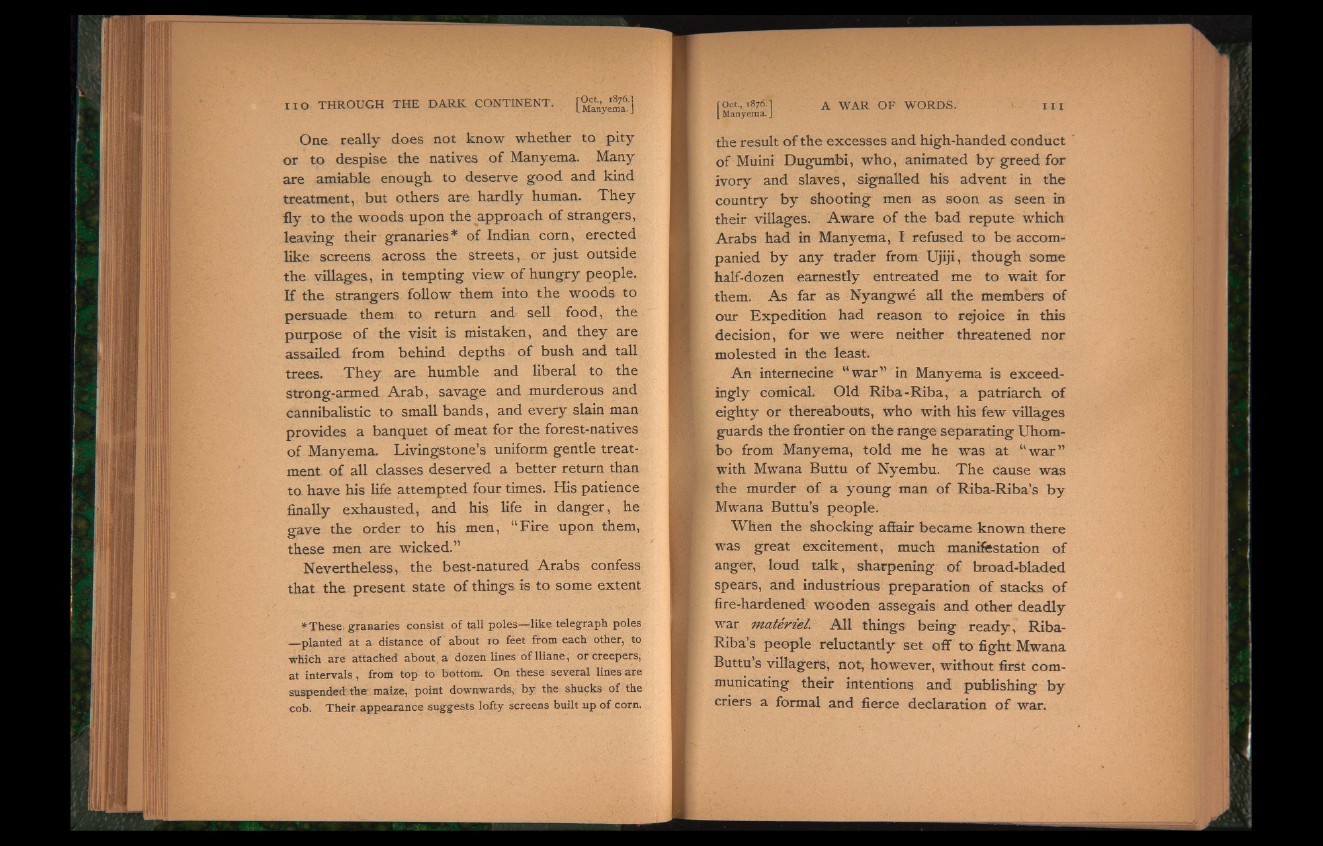
One really does not know whether to pity
or to despise the natives of Manyema. Many
are amiable enough to deserve good and kind
treatment, but others are hardly human. They
fly to the woods upon the approach of strangers,
leaving their granaries* of Indian corn, erected
like screens across the streets, or just outside
the villages, in tempting view of hungry people,
If the strangers follow them into the woods to
persuade them to return and sell food, the
purpose of the visit is mistaken, and they are
assailed from behind depths of bush and tall
trees. They are humble and liberal to the
strong-armed Arab, savage and murderous and
cannibalistic to small bands, and every slain man
provides a banquet of meat for the forest-natives
of Manyema. Livingstone’s uniform gentle treatment
of all classes deserved a better return than
to have his life attempted four times. His patience
finally exhausted, and his life in danger, he
gave the order to his men, “ Fire upon them,
these men are wicked.”
Nevertheless, the best-natured Arabs confess
that the present state of things is to some extent
* These, granaries consist of tall poles—like telegraph poles
planted at a distance of about 10 feet from each other, to
•which are attached about , a dozen lines oflliane, or creepers,
at intervals, from top to bottom. On these several lines are
suspended the' maize, point downwards, by the shucks of the
cob. Their appearance suggests lofty screens built up of corn.
the result of the excesses and high-handed conduct
of Muini Dugumbi, who, animated by greed for
ivory and slaves, signalled his advent in the
country by shooting men as soon as seen in
their villages. Aware of the bad repute which
Arabs had in Manyema, I refused to be accompanied
by any trader from Ujiji, though some
half-dozen earnestly entreated me to wait for
them. As far as Myangwé all the members of
our Expedition had reason to rejoice in this
decision, for we were neither threatened nor
molested in the least.
An internecine “war” in Manyema is exceedingly
comical. Old Riba-Riba, a patriarch of
eighty or thereabouts, who with his few villages
guards the frontier on the range separating Uhom-
bo from Manyema, told me he was at “ war”
with Mwana Buttu of Nyembu. The cause was
the murder of a young man of Riba-Riba’s by
Mwana Buttu’s people.
When the shocking affair became known there
was great excitement, much manifestation of
anger, loud talk, sharpening of broad-bladed
spears, and industrious preparation of stacks of
fire-hardened wooden assegais and other deadly
war matériel AU things being ready, Riba-
Riba’s people reluctantly set off to fight Mwana
Buttu’s villagers, not, however, without first communicating
their intentions and publishing by
criers a formal and fierce declaration of war.